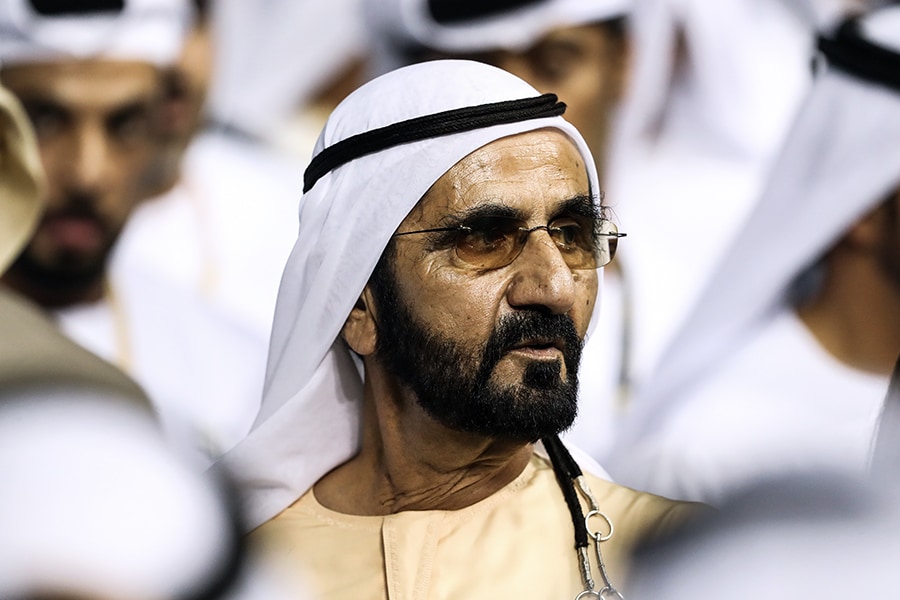
We know where the Sheikh's horse is. But where is his daughter?
In 2018, Sheikha Latifa, the daughter of Dubai's ruler Sheikh Mohammed bin Rashid Al Maktoum, fled Dubai in a yacht but was turned over to Emirati security officers by Indian commandos who had raided the boat and seized her

Sheikh Mohammed bin Rashid Al Maktoum
Image: Francois Nel/Getty Images
LEXINGTON, Ky. — For nearly 40 years, Dubai’s ruler has spent vast sums here in central Kentucky. On thousands of acres of lush bluegrass with gently rolling hills mapped by limestone and plank fences. On horses — stallions and mares to populate his farms with foals and yearlings purchased in the sales ring.
All in pursuit of winning a $3 million race, the Kentucky Derby.
After 11 failed attempts, the ruler, Sheikh Mohammed bin Rashid Al Maktoum, finally has a horse with a real shot to win the Derby, America’s most famous race. Essential Quality is the 2-1 morning line favorite to win its 147th running on Saturday at Churchill Downs in Louisville.
©2019 New York Times News Service




